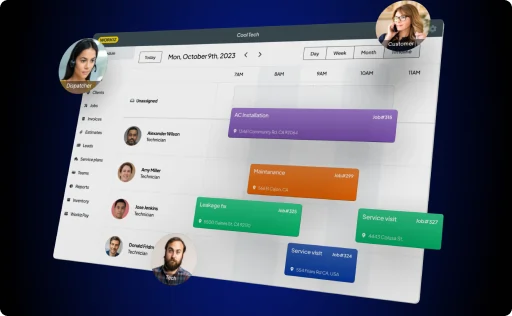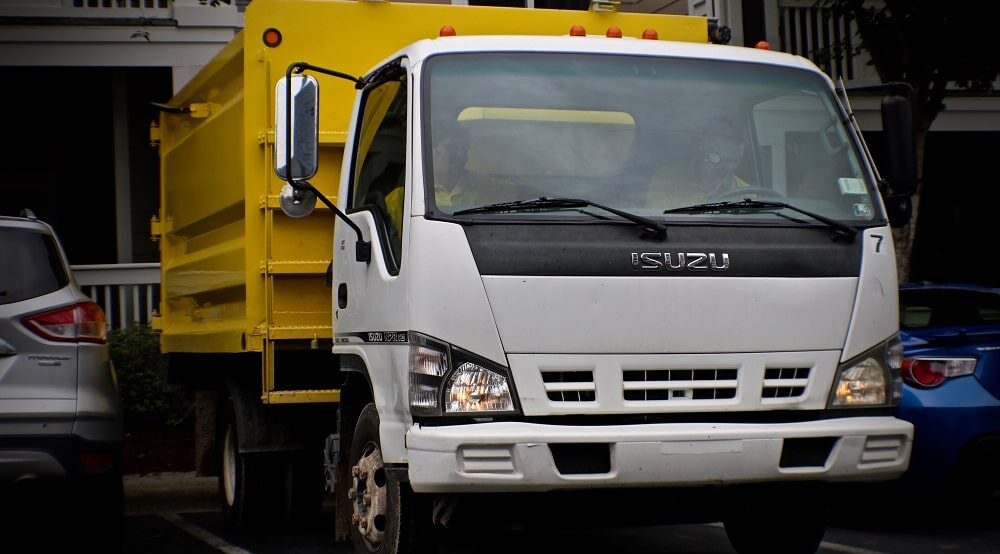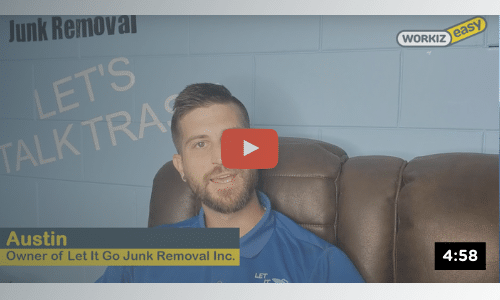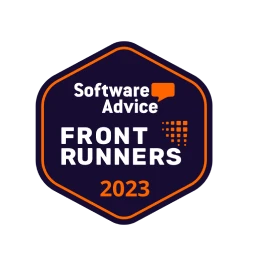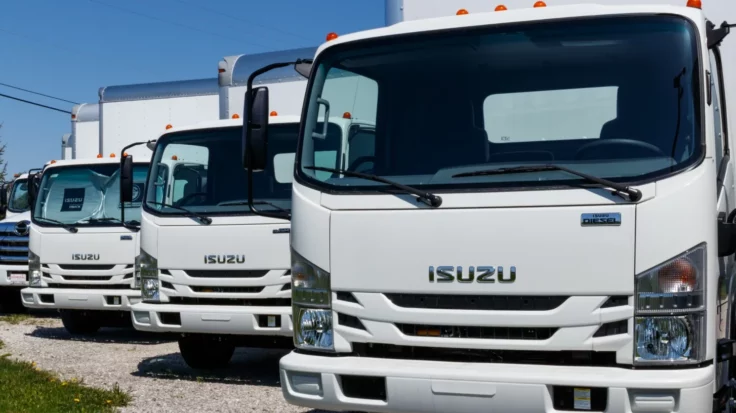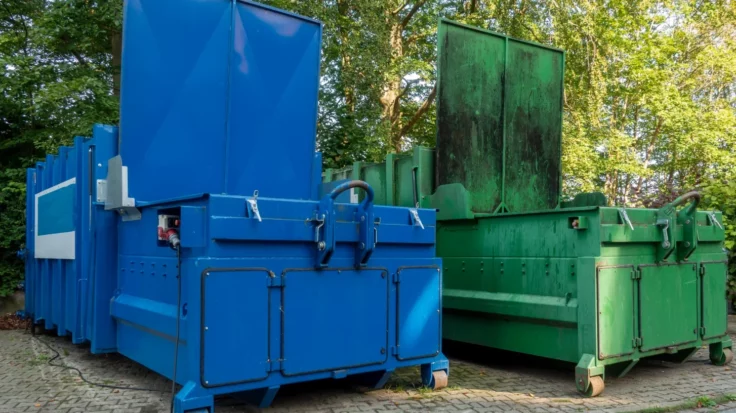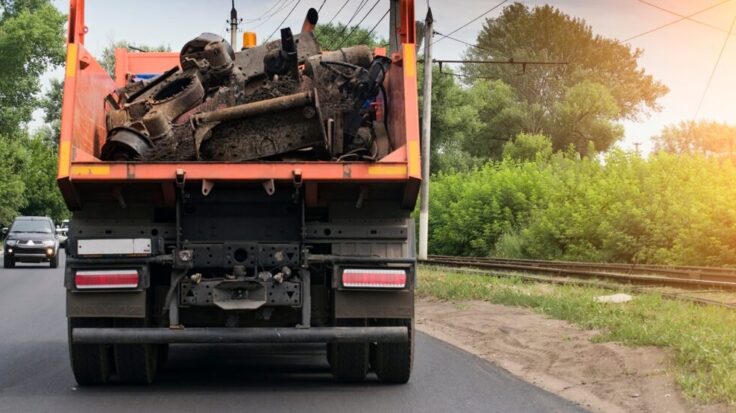Maybe you want more freedom, or you know this is an industry you will thrive in? Well, you’ve come to the right place, and we’re here to help!
The junk removal industry can open up a world of opportunities for you. However, opening a business is a big decision, so you need to plan carefully before diving in. This business is great for problem solvers, people persons, and those who like working with their hands. It also involves managing other people and resources, while maintaining a strict schedule. We’ve put together a list Of 5 steps to help you start out.
In addition, get some tips from Austin, Owner of Let It Go Junk Removal Inc:
Step 1: Do the research
Market research:
Before doing anything, it’s important to scout out the field. You’re going to need to know who the big junk removal players are in your area. What are their advertising strategies, who are their clientele, and how many employees do they have? You can find this information by searching via google, taking a look at their website and social media, and even just asking around. How are they ruling the market? Understanding your potential competition is vital before creating your own plan.
Research potential costs:
Depending on your location, equipment and licenses will cost various amounts. According to The Entrepreneur, junk removal start-up costs could be anywhere between $2,000 – $10,000 if you run it cheaply. For a franchise, the costs will be much higher. This brings us to the most important question. Do you have enough money to get started? Many junk removal professionals start out by having a part-time job to meet their own personal obligations while investing in their junk removal company on the side. It takes time to build up a referral-based business and generate interest from your local community. You can also apply for a loan from a bank or a credit union, but it’s best to start out cheap and keep costs low at the beginning.
Your potential start-up costs will include:
- Equipment (a cheap truck + trailer): $5000
- Basic tools: $500
- Monthly insurance: $450 – $1000
- Monthly gas fees: $600 – $1000
- Initial advertising costs: $500 – $1000
- Landfill fees: ≈ $40 per ton (Note – Every state/landfill charges different rates)
Key money-saving tips:
- Scrap yards will pay YOU for metal
- Recycling and donating items will save you landfill fees
Step 2: Create a business plan
Creating a business plan will be the base of your entire business so it is essential to invest your time in this. Your business plan should include the following points:
Company overview:
This should include establishing a company vision and mission that will drive your company to success in the long run. Your vision statement should take into account where your company is currently and point in the direction of where you want to go. A mission statement speaks about your company’s purpose and explains why you exist, which will help your customers understand your goals.
Name and logo:
Many large junk removal businesses use the word “junk” in their name; however, this is not a must, and you can get creative. Having a memorable name and logo will enable customers to easily recognize and remember you. Use a free online tool, such as Taylor Brands, to make your own logo.
Business opportunities:
You have two main options, either opening your own business run by you, or purchasing a franchise. Franchises usually require a large amount of money to start with, and it means you don’t own 100% of the business.
Target market:
Decide if you will provide residential services, commercial services, or both. In general, commercial junk removal can be a larger-scale job, as it would include everything in an office space that can be disposed of. Residential services require large amounts of junk removal from a customer’s house.
Financial targets:
In order to succeed as a business, you need to set short and long term financial targets. How long will it take you to start making good money? This question must be planned and answered before moving on to the next step.
Pricing model:
You need to make sure you’re charging enough to cover costs, giving a fair price so that customers will hire you, and yet still making a good profit. What are your competitors in the area charging? You can give them a call as a “potential customer” to easily find out. Once you have established a pricing format, make sure it is simple and clear for the customer to understand. Complicated pricing could scare a customer away as they may be afraid of getting ripped off.
For a full business plan you can check out OGS capital.
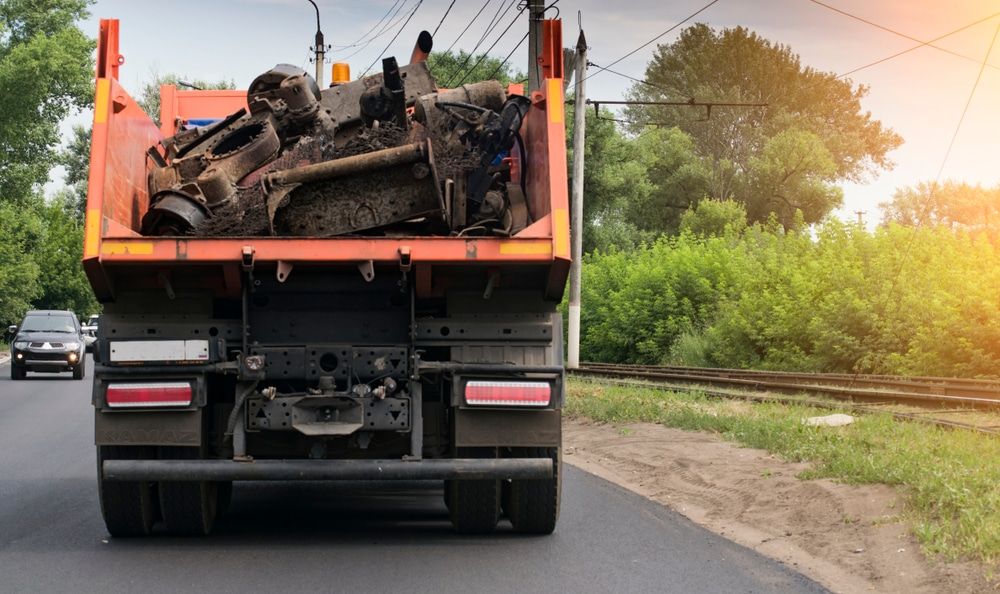
Step 3: Get business tools and equipment
Business equipment:
Get the right equipment: This includes shovels, rakes, garbage bins, garbage bags, a tarp (so nothing flies away) and safety equipment. Purchase a truck and ideally a trailer as well to haul junk to the garbage dump or recycling center and to transport employees from one job to the next. The truck size and number of employees will depend on how much money you are ready to invest as you start out. Junk removal services require at least one other part-time employee to assist with the hard work.
Choose a management software:
In order to plan your business effectively and help it grow, you will need a junk removal management software to control your client database, schedule and manage jobs, keep track of your employees, and oversee your team. Once you lose track of customers and contact information, you are losing money. Workiz offers a great package starting at $65/month for small-medium businesses to make sure you never miss an appointment and will help you get more jobs. Junk Removal pros who use Workiz increased their revenue by 22%. You can even ask customers to review you while you’re on the job, which increases your review rate up to 80%.
Step 4: Acquire a license & business insurance
Acquire a License:
To acquire a business license you can visit your local city hall and get the correct paperwork to start your junk removal business. You’ll need to get a state tax ID number, register your business name and get zoning approval in the location you will be operating. We recommend consulting with a business attorney that understands the junk removal industry to ensure that you get all the legal state requirements (Example: Denver license).
Business Insurance:
As you are starting out your business, you may want to save as much money as possible, and rightfully so, but what if something goes wrong? Well, unfortunately, you’ll end up covering the costs. That’s why you need to have the right insurance policies for your junk removal business. There are 3 main policies you should consider: General Liability, Commercial Auto, and Workers’ Compensation (if you have staff – according to state).
Step 5: Make a marketing plan
Build a website:
Many of your customers will try to find you online, and this means you will need to build an online presence. The easiest ways to build your site is by using Wix or WordPress; you can use one of their basic templates and tell your customers about your company. Customers love a good story, so add how you got started and include high-quality images to help them feel engaged. Important: Your contact information must be clear and easy to find!
Advertise:
This is key! You need to be where your competition is, and you need to be better. The top places to advertise your junk removal business are Google Ads, Yelp, Home Advisor, Craigslist, Facebook, Instagram, Yard signs, and Truck graphics. In addition, make professional business cards to give out; you never know when you might run into a customer. Finally, get your junk removal business listed in local directories and start asking your customers for reviews on sites like Yelp and Angie’s List.
Sales strategy:
Why would customers choose you? Do you promise to arrive within 24 hours of the call? Or maybe you will offer to return customers a discount? Get known for something, and then advertise it. This will help you stand out.
Want to learn more about how junk removal business software can help to grow your business? Book a free demo of Workiz to help you get started on the right foot!
